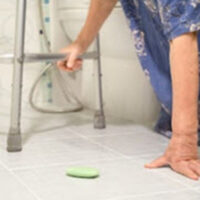Was Your Loved One’s Broken Hip The Result Of Nursing Home Negligence?

Elderly nursing home residents often suffer from a wide range of medical conditions, including weakened immune systems, high blood pressure, and vitamin deficiencies. Unfortunately, these issues make it much more likely that a resident will sustain certain kinds of injuries, including broken bones. Broken hips, in particular, have proven to be especially common and, according to the Centers for Disease Control and Prevention (CDC), are the leading cause of both fatal and nonfatal injuries in people over the age of 65 years old.
Whether the result of a fall, an untreated medical condition, or physical abuse, many nursing home hip injuries are actually evidence of neglect. For help investigating the cause of your own loved one’s injury, and if possible, holding negligent nursing homes accountable, please call one of our dedicated Tulsa elderly broken bones lawyers today.
Risk Factors
The CDC estimates that more than 300,000 elderly individuals are hospitalized for hip fractures every year. Alarmingly, as many as 95 percent of hip fractures are the result of falling (usually sideways). There are a number of conditions that contribute to falls among the elderly, including:
- Lower body weakness;
- Vitamin D deficiency;
- Problems with balance;
- Bone density loss;
- Use of certain medications, like sedatives, tranquilizers, and antidepressants;
- Vision problems;
- Poor nutrition; and
- Trip hazards.
Because these kinds of conditions pose such a high risk for elderly individuals, nursing homes are expected to take certain steps to address them, including:
- Checking the side effects and potential drug interactions of a resident’s medications;
- Installing grab bars, railings, and other fall prevention equipment,
- Ensuring that fall-prone residents are supervised when attempting to stand, sit, or walk;
- Providing residents with walkers and other assistive equipment; and
- Ensuring that residents are hydrated and well-fed with nutritious meals.
Failing to take these preventive measures can have devastating consequences for residents, who, after sustaining a broken bone, are much more likely to suffer from other physical and emotional complications.
Consequences of Broken Hips
Besides the pain and limited mobility that so often accompany broken hips, this kind of injury can also lead to additional health problems. For instance, residents who break their hips typically have to undergo surgery and so may suffer further loss of mobility, or be required to take additional medications that cause them to struggle with balance. Those who sustain broken hips are also more likely to suffer future falls and may struggle with depression. Fortunately, it is possible for nursing home residents and their families to recover compensation from negligent nursing home administrators and employees who fail to take the precautionary measures that would protect a resident from a fall and subsequent broken hip.
Call Today for a Case Review
Please call Levinson Law, P.C. to learn more about your legal options after suffering a fall-related injury in a nursing home. You can set up a consultation with a member of our Tulsa elderly broken bones legal team by calling our office at 918-492-4433 today.
Resource:
cdc.gov/falls/facts.html

